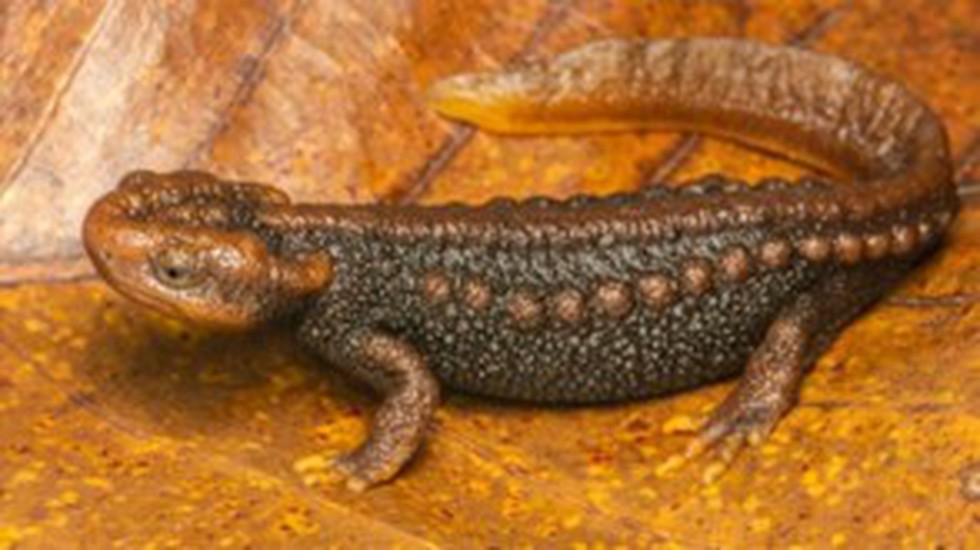About Tylototriton zaimeng:
- This had earlier been mistaken for its close relatives — the T. himalayanus and the T. verrucosus.
- Phylogenetic analysis revealed that the new salamander is a sister species of the T. panwaensis and T. houi found in northern Myanmar and southern China,
- Appearance:
- It was found to be a medium-sized salamander.
- Its head is massive and wide, with a rounded snout and protruding supratemporal bony ridges, while a well-developed sagittal ridge adorns its crown.
- The creature’s limbs, short and elegantly formed, did not overlap when adpressed along its body.
- A wide and unsegmented vertebral ridge ran along its back, accompanied by 13-14 pairs of rib nodules, marking a clear distinction from its kin.
- It displayed a stunning brown colouration, embellished with dull orange to yellowish-brown markings on its head, vertebral ridge, rib nodules, palms, soles, vent, and ventral tail ridge. Vomerine teeth, elegantly organized in two distinctly curved bell-shaped series, further differentiated this mysterious creature.
Key facts about Zaimeng Lake
- It is situated on top of Khongtheng mountain ranges.
- Zaimeng in the Liangmai Naga dialect means “puzzle” or “mystery”.
- The greater part of the lake is basically a marshy mass of thick grass like weeds, mixed with reeds and green mosses.
- The estimated height of this lake is 2176 metres above sea level.
